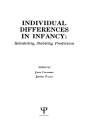The landmark International Handbook of Applied Research in Intellectual Disabilities presents, explains, and illustrates key methods of research and evaluation of proven relevance and value to the field of intellectual disabilities. It features sections on the concepts and theoretical models underlying research and evaluation, the methods and techniques themselves, and the key application areas where the methods are demonstrated in action. Coverage includes applications in educational, social, family, health, and employment aspects of care and provision for those with intellectual disabilities.
表中的内容
About the Editors.
List of Contributors.
Preface.
Section I: The Historical and Social Context of Research
Chapter 1: Historical Overviewof Applied Research in Intellectual Disabilities: The Foundation Years (Trevor R.Parmenter).
Chapter 2: Cultural Issues (Chris Hatton).
Chapter 3: Ethical Research Involving People with Intellectual Disabilities (Tim Griffin and Susan Balandin).
Chapter 4: Emancipatory and Participatory Research: How Far Have We Come? (Paul Ramcharan, Gordon Grant and Margaret Flynn).
Section II: Approaches to Measurement.
Chapter 5: Interviewing People with Intellectual Disabilities(Jonathan Perry).
Chapter 6: Interviewing Family Members and Care Providers:Concepts, Methodologies, and Cultures (Jan Blacher and Iris Tan Mink).
Chapter 7: Participant Observation and Research on Intellectual Disabilities (Michael V. Angrosino).
Chapter 8: Measurement of Behavior with a Special Emphasis on Sequential Analysis of Behavior (Paul J. Yoder, Katherine Short-Meyerson and Jon Tapp).
Section III: Researching the Nature, Characteristics, and Social Context of Intellectual Disability.
Chapter 9: Studying Behavioral Phenotypes: Issues, Benefits, Challenges (Robert M. Hodapp and Elisabeth M. Dykens).
Chapter 10: Issues in Researching the Ageing of People with Intellectual Disability (Christine Bigby and Susan Balandin).
Chapter 11: Research Methods in Intellectual Disabilities: The Family Context (Marsha Mailick Seltzer, Frank J. Floyd and Andrea R. Hindes).
Chapter 12: Quality of Life and Subjective Well-Being:Conceptual and Measurement Issues (Robert L. Schalock and David Felce).
Chapter 13: Investigating Inclusion: A Review of Research Methods for Individuals with Intellectual Disability (Samuel L.Odom, Katherine Klingerman and Mark Jakowski).
Chapter 14: Research on Social Relationships (Craig H.Kennedy).
Chapter 15: Sexuality Research and Persons with Intellectual Disabilities (Dorothy M. Griffiths, Shelley Watson, Tanya Lewis and Karen Stoner).
Chapter 16: Choice (Chris Hatton).
Chapter 17: Research on Engagement in Activity (David Felce and Eric Emerson).
Chapter 18: Adaptive Behavior: Its Conceptualization and Measurement (Robert L. Schalock).
Chapter 19: Communication and Language: Research Design and Measurement Issues (Steven F. Warren, Nancy C. Brady and Marc E.Fey).
Chapter 20: Mental Health (Sally-Ann Cooper).
Chapter 21: Challenging Behavior: Research Design and Measurement Issues (Edward G. Carr, John Innis, Audrey Blakeley-Smith and Shawn Vasdev).
Section IV: Researching the Impact of Support Systems and Services.
Chapter 22: Educational Supports (Robert E. O’Neill and Lora Tuesday Heathfield).
Chapter 23: Residential Supports (Roger J. Stancliffe, Eric Emerson and K. Charlie Lakin).
Chapter 24: Interaction with the Criminal Justice System (Susan Hayes).
Chapter 25: Emerging Trends in Methods for Research and Evaluation of Behavioral Interventions (J. Stephen Newton and Robert H. Horner).
Chapter 26: Research Issues in Cognitive Therapy (Dave Dagnanand William R. Lindsay).
Chapter 27: Methodology, Design, and Evaluation in Psychotherapy Research with People with Intellectual Disabilities (Nigel Beail).
Chapter 28: Methodological Issues in Psychopharmacology for Individuals with Intellectual and Developmental Disabilities(Travis Thompson, Jennifer Zarcone and Frank Symons).
Chapter 29: Researching Staff (Chris Hatton, John Rose and David Rose).
Chapter 30: The Economics of Intellectual Disability (Angela Hallam and Martin Knapp).
Index.
关于作者
Eric Emerson, Ph.D., is Professor of Clinical Psychology at
the Institute for Health Research at Lancaster University, UK.
Prior to this, he held posts at the Hester Adrian Research Centre
at the University of Manchester, the Tizard Centre (University of
Kent at Canterbury) and the South East Thames Regional Health
Authority, and as a clinical psychologist in the UK and Canada. He
has written several books and over 140 articles in academic and
professional journals on issues related to supported accommodation,
challenging behaviour and health/social care services for children
and adults with intellectual disabilities.
Chris Hatton, Ph.D., is Professor of Psychology, Health
and Social Care at the Institute for Health Research at Lancaster
University, UK, having previously held research posts at the Hester
Adrian Research Centre, University of Manchester, UK. He has
written or edited several books and almost 100 articles in academic
and professional journals on a range of issues concerning people
with intellectual disabilities, including the assessment of service
quality, supported accommodation, staffing issues, and the
experiences of people with intellectual disabilities and their
families from minority ethnic communities in the UK.
Travis Thompson, Ph.D., is Executive Program Director of
the Minnesota Autism Center and Professor, Department of
Pediatrics, University of Minnesota School of Medicine,
Minneapolis, USA. He has published 24 books and more than 240
articles, chapters in journals and monographs. He has served on
numerous national and international committees concerned with
research, ethics, and policy. His research has focused on the
environmental and biological factors underlying the challenging
behaviour of people with developmental disabilities, including
communication, architectural design, and genetics variables.
Trevor R. Parmenter, Ph.D., holds the Foundation Chair of
Developmental Disability in the Faculty of Medicine, and the
Adjunct Chair in the Faculty of Education, at the University of
Sydney, Australia. He is the Director of the Centre for
Developmental Disability Studies in the Royal Rehabilitation
Centre, Sydney. His former positions include Professorial Fellow
and Director of the Unit for Community Integration Studies at
Macquarie University, Australia, prior to which he held teaching
and administrative positions in the New South Wales Department of
Education and Training. Currently, he is the Immediate Past
President of the International Association for the Scientific Study
of Intellectual Disabilities. His publications include 80 articles
in professional journals and 45 book chapters in the areas of
disability policy, quality of life, dual diagnosis, and vocational
training.












